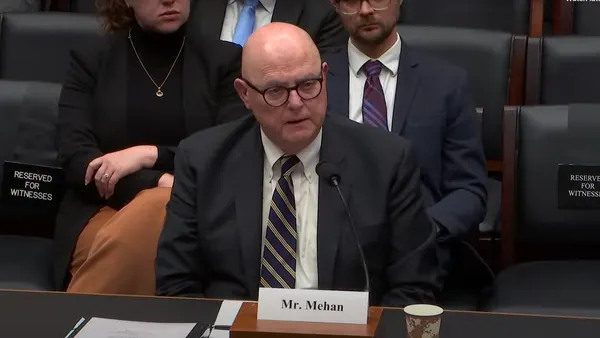Dive Brief:
- An ordinance is on hold in Palo Alto, CA that, if passed, will require businesses to pay for compost services as well as separate food scraps, recyclables, and other waste — and pay a fine for improper sorting.
- If the ordinance is approved, the city will require all commercial customers, multifamily properties and food-service establishments that produce more than 10 cubic yards of compost per week to subscribe to the city's system by April 1.
- While the City Council has delayed making a decision on this rule — proposed to help the city reach its goal of zero waste to landfills by 2021 — members indicated they largely support the composting provision. But Councilman Greg Scharff said he was concerned that some of the ordinance goes "far beyond" initial discussions. Members unanimously voted in favor of Scharff's motion to send the proposal back to the panel.
Dive Insight:
As reported in San Jose Mercury News, about 30% of the city's commercial customers already subscribe to composting services provided by GreenWaste. But 1,000 customers do not participate, generating 7,000 tons of organic waste that go to the landfill. Still, city staff report the program keeps about 3,000 tons of compostable materials from landfills annually.
There are logistics to work out so that all businesses can participate within their means, said Phil Bobel the city's assistant director of Public Works. But, he said, "the benefit to them is that they will save money by composting instead of throwing items into the trash, because garbage service costs more."
The issue of cost is one that caused high tensions in Oakland, where the city had to negotiate contracts to make composting affordable for businesses. While the city was finally able to work out a system that complimented everyone's needs, business owners were discontent with the way the matter is handled.
If composting costs can be worked out before an ordinance is put in place, the efforts will have great environmental benefits. "Our goal is that everything will either go into a compost container or a recycling container, eventually," said Bobel.








